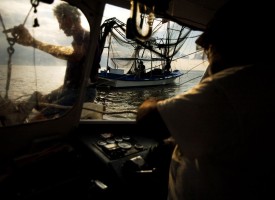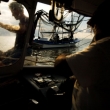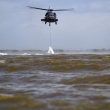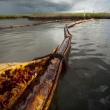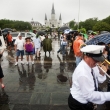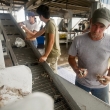Spilling Over is a work-in-progress documentary film that documents the human consequences of the 2010 BP Gulf oil spill disaster. I began working on Spilling Over with a team of journalists as a student at UNC-Chapel Hill. When we began documenting the community, I was working mostly with photography and interviews, but as we progressed we gradually shifted to filming as priority. These photos are from the first few months of the oil spill disaster.
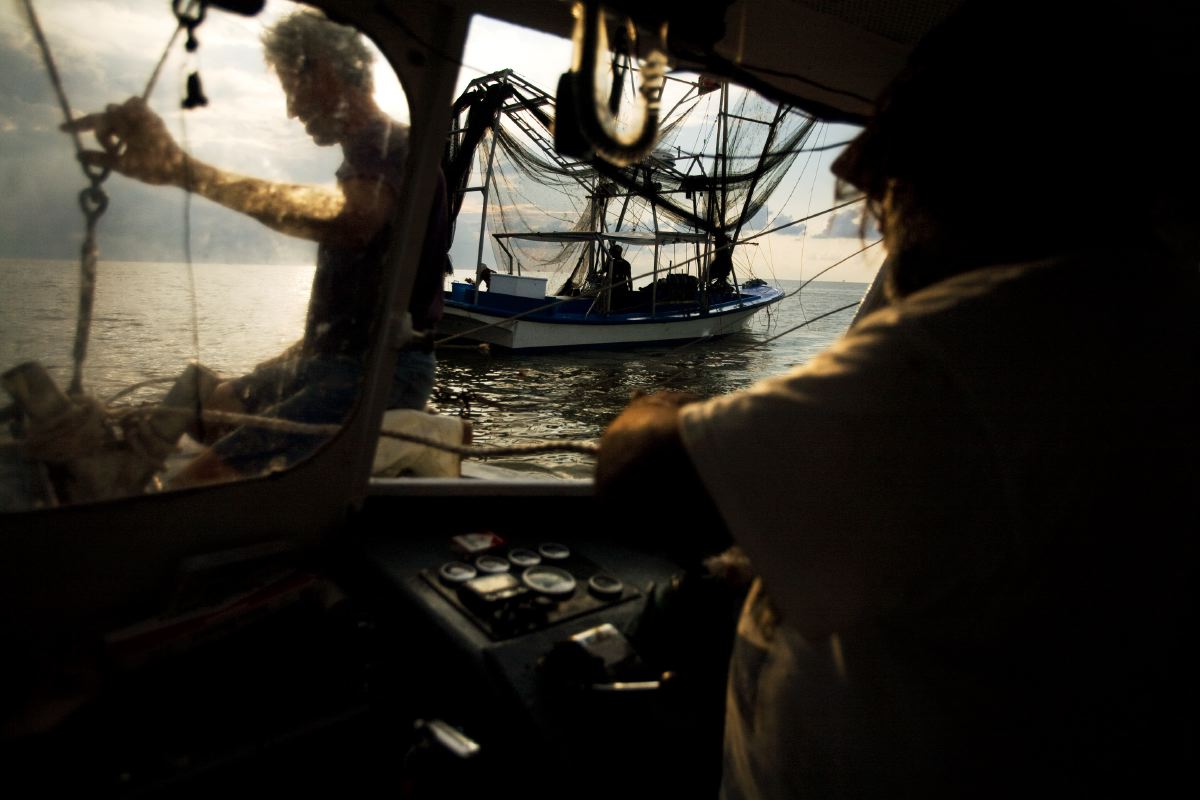
Eric Tiser, right, a lifelong shrimper from Venice, La., works on his boat with deckhand Marvin Smith, left, after helping a friend (center) get his boat running. Many shrimp areas have been closed down due to the BP oil spill. "I'm just making all I can right now so I can get my kids out of here," Tiser said. "Everything just got right since Katrina, but where I like to shrimp at is all closed down."
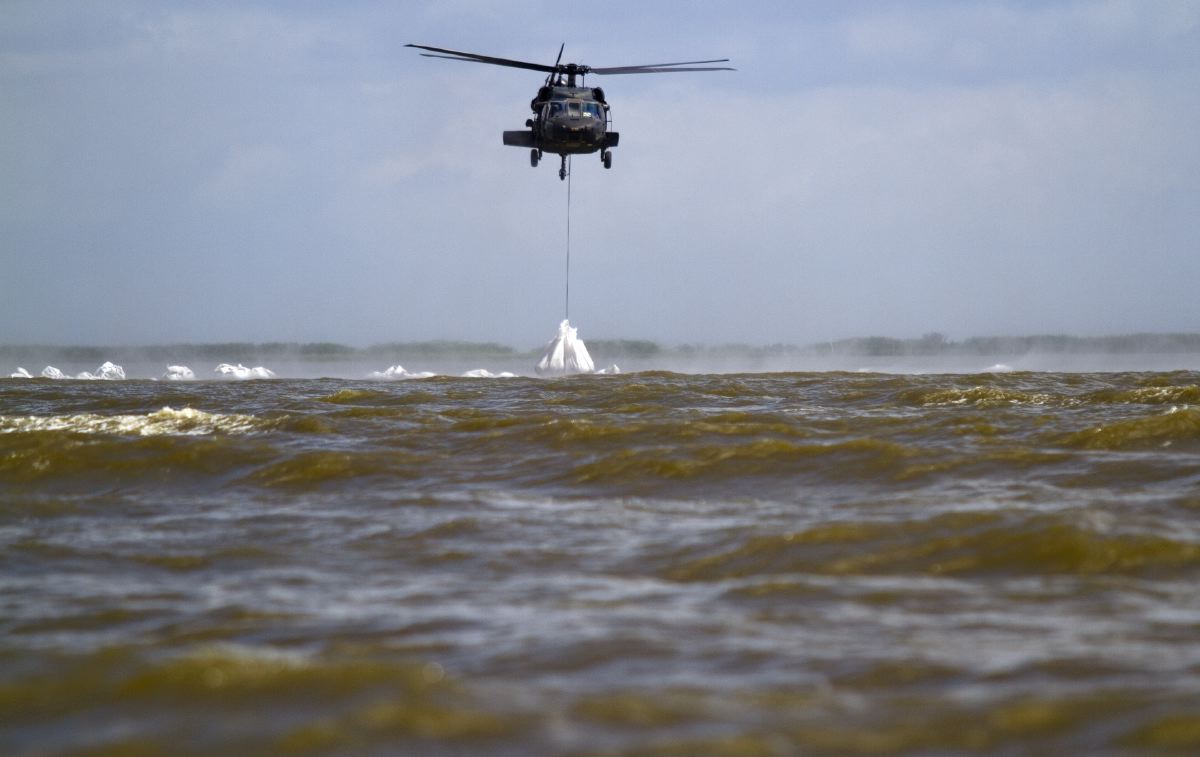
Sandbags are dropped across the inlet of a bay off the coast of Louisiana to keep oil from getting into the bays that provide the nation with it's seafood. While the sandbags keep oil from entering the bays, it also affects the flow of sea life and the water, the consequences of which, are unknown.
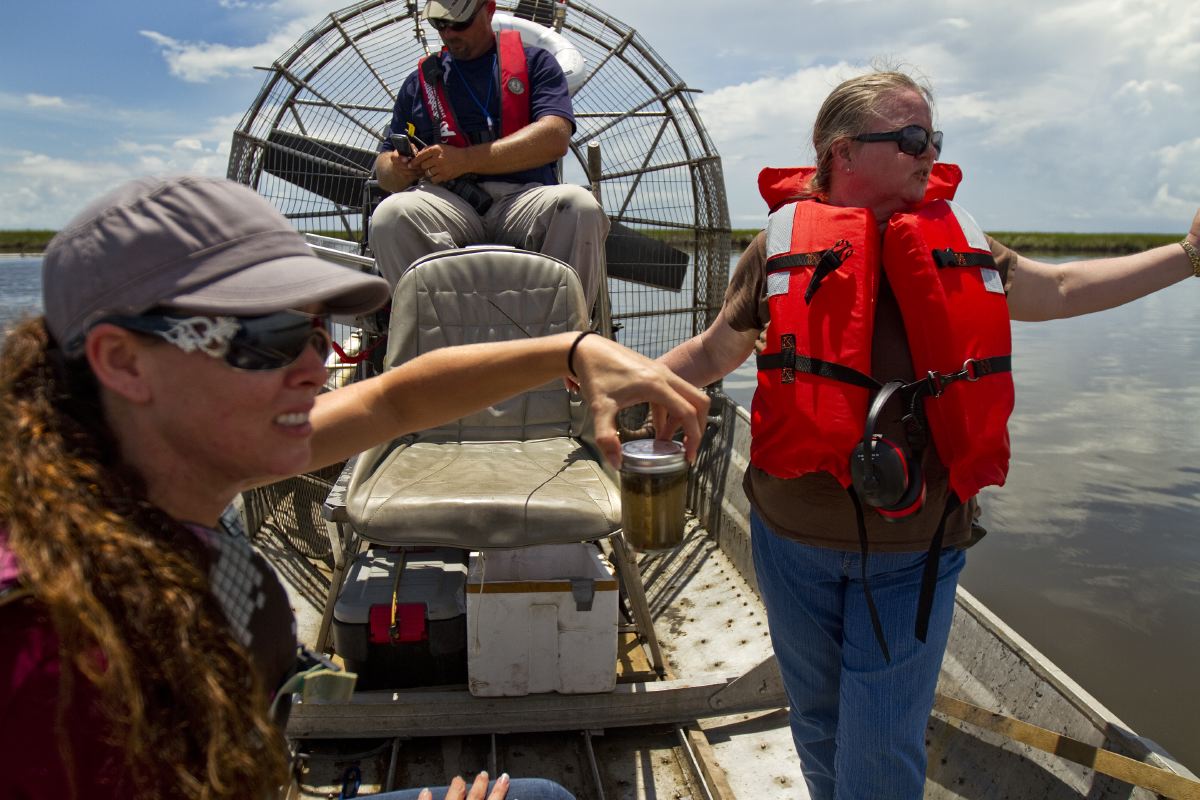
Kindra Arnesen, foreground, cringes as she holds up a water sample from Barataria Bay off the coast of Louisiana. Arnesen and Vickie Perrin, both members of the Coastal Heritage Society of Louisiana, are doing independent water, air and rain testing in their area because they no longer feel they can trust the government or BP to fulfill their promise to do the right thing. "My duties as a housewife have been put on the backburner, my duties as a mother have been put on the backburner," said Arnesen, who has become an activist fighting for her community.
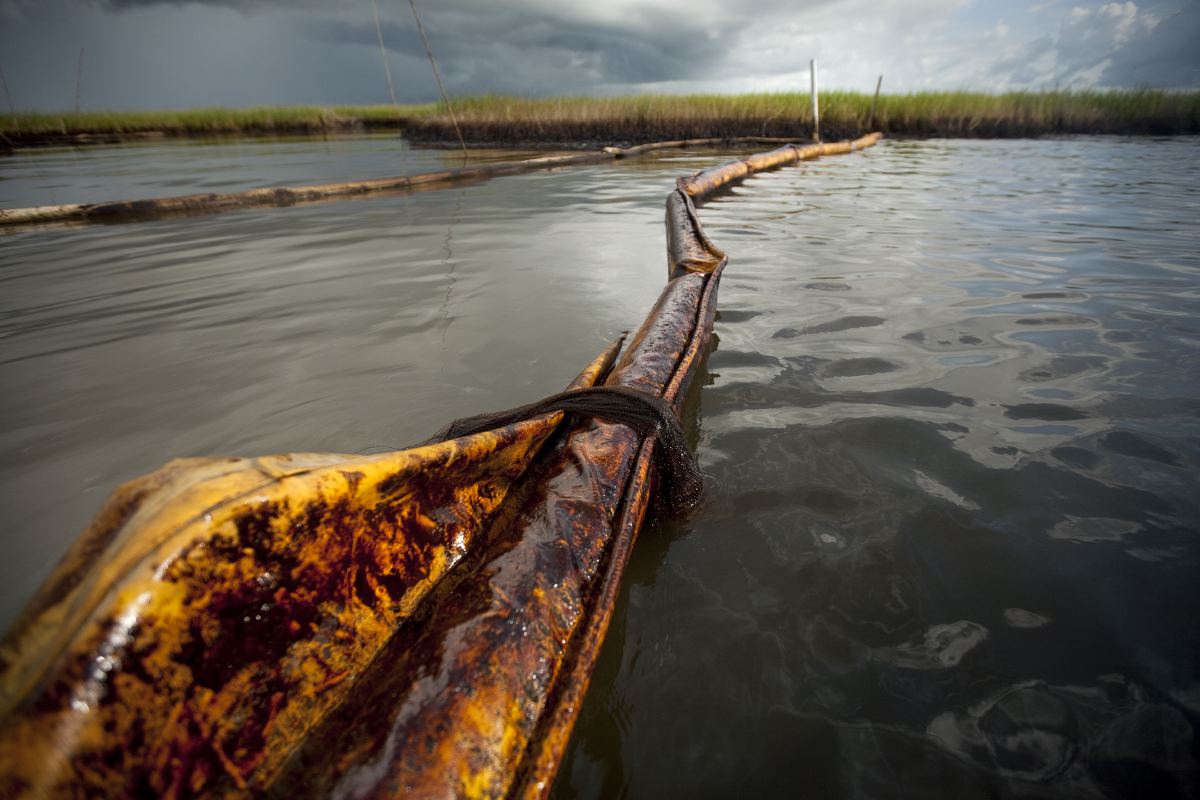
Oil soaks both sides of boom and covers the marsh in Barataria Bay. Despite media coverage, BP public relations and federal government claims, miles of boom remain in the bays of Louisiana and other Gulf states as well as approximately 80 percent of the oil (nearly 160 million gallons) and 1.8 million gallons of dispersant according to the National Oceanic and Atmospheric Administration.

Louisiana Governor Bobby Jindal speaks at a press conference after flying over local waters to discuss what he saw as the oil slick was approaching Louisiana's coast in May. Gov. Jindal has been extremely vocal, even helping clean some of the oil himself, calling for more help from the government and an end the Obama administration's drilling moratorium. Despite the continuing threats to his state's citizen's, Jindal as also dropped out of the limelight in local and national media coverage.
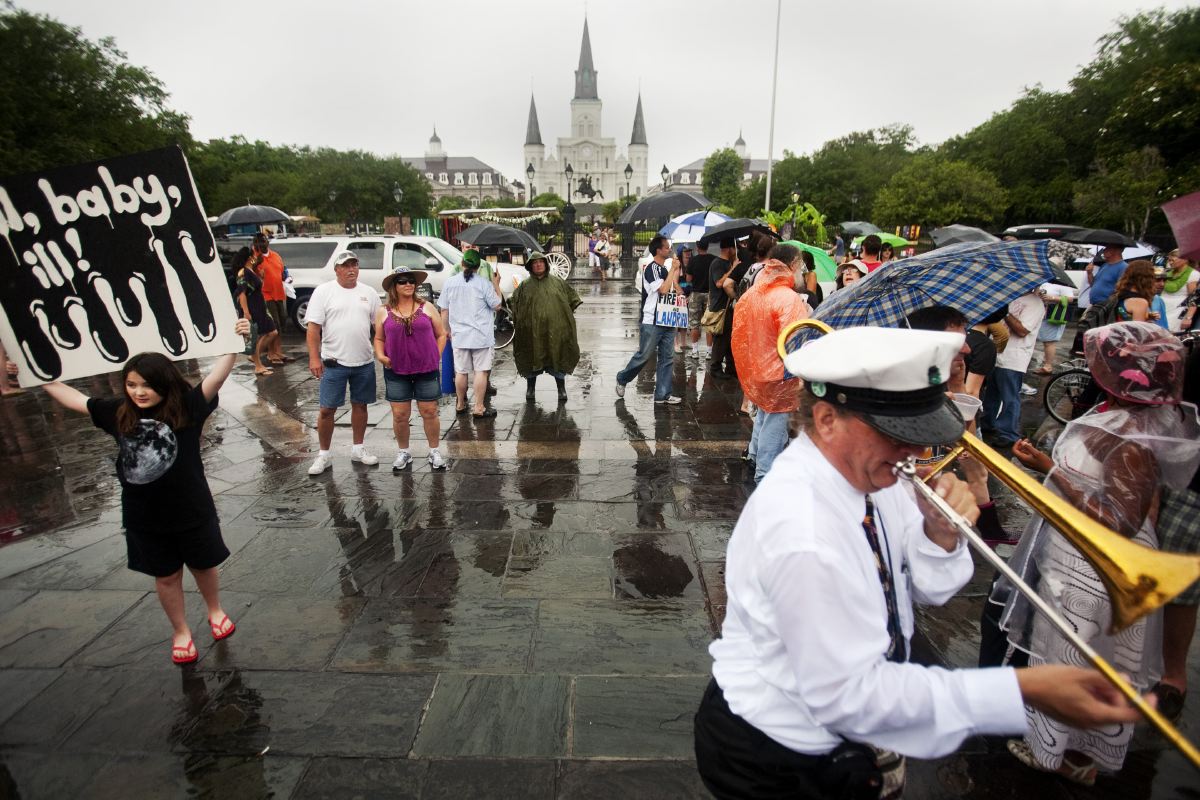
Despite the rain, hundreds of people rallied at Jackson Square in New Orleans on May 30 protesting BP and the oil industry. While the protest attracted a large crowd, subsequent protests from Baton Rouge to Washington, D.C., have had poor turnouts. Unfortunately, for many Americans, the oil spill merely means finding a new vacation spot and less seafood.
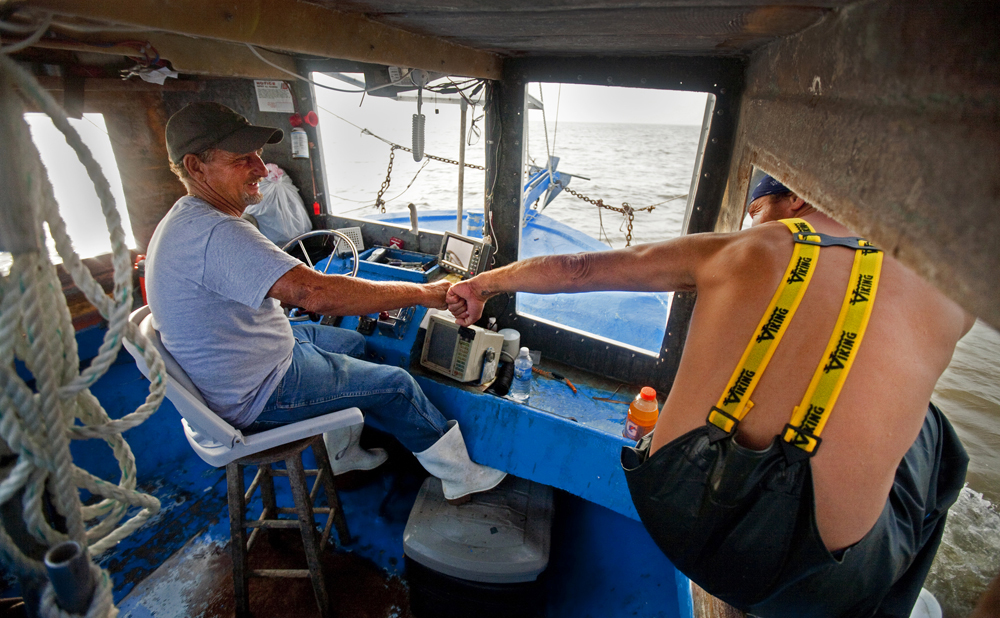
Acy Cooper, Jr., vice president of the Louisiana Shrimp Association, and Cepriano remain optimistic despite a low catch on the first day of the white shrimp season. Cooper and Cepriano worked for BP for 90 days with the Vessels of Opportunity program before being laid off.
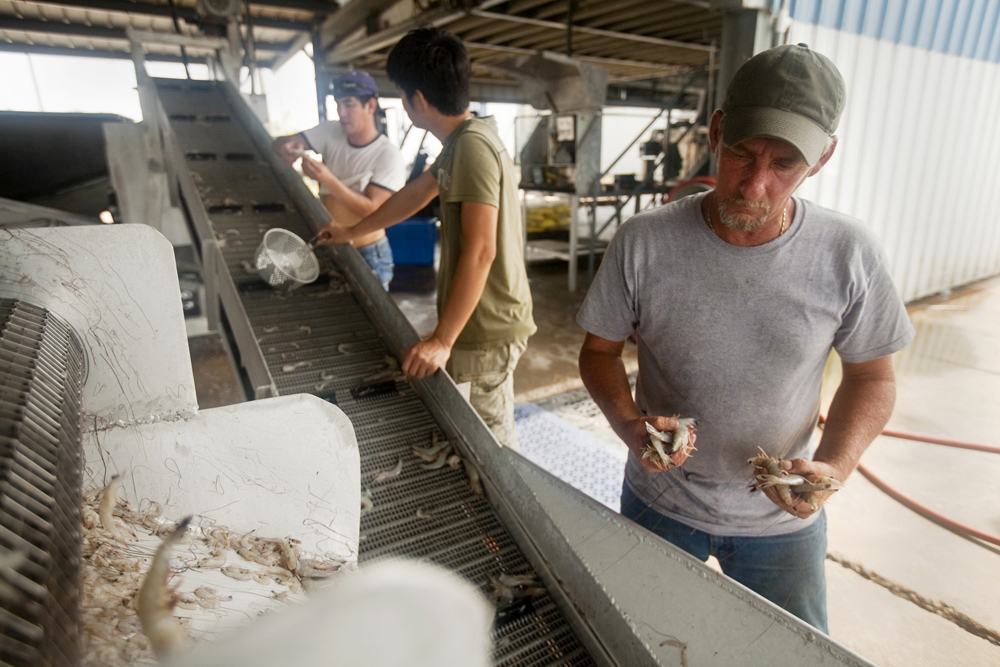
"This isn't normal for the first day," said Cooper, who worries that the oil spill may have long-term effects on the shrimp population. The dock paid Cooper less than two dollars a pound for the shrimp, barely allowing him to break even for the day after paying for fuel, ice and Cepriano’s pay.
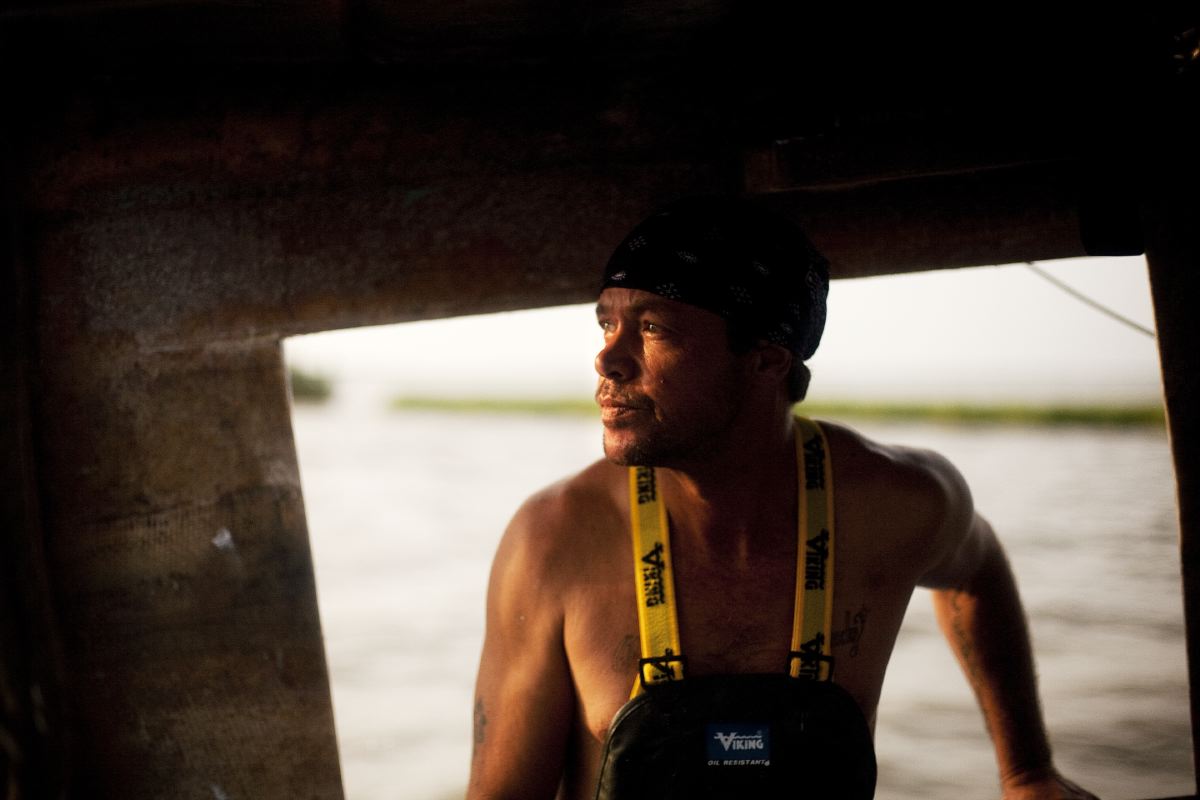
Ray Anthony Cepriano, of Venice, La., a deckhand, remains optimistic despite a low catch on the first day of the white shrimp season in Louisana since the BP oil spill. Cepriano worked for BP for 90 days with the Vessels of Opportunity program, before returning to his life-long career as a fishermen.

